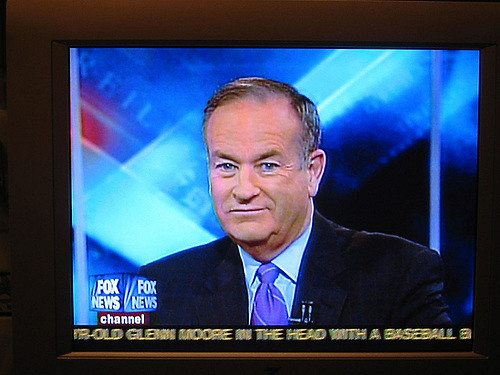
April 19, 2017; New York Times
We want to believe that corporations’ new involvement in recent boycotts is a sign they’re becoming more values-based, but Bruce Headlam has written an interesting opinion piece for the New York Times on Fox News’ dumping of Bill O’Reilly.
The termination followed a number of allegations of sexual harassment, which led to protests, which led to an advertisers’ boycott involving the decampment of 50 corporate sponsors. Did the boycott then lead to the termination? Headlam says probably, but the relationship is not as direct as you might imagine.
What’s driving these about-faces? There’s little evidence that broad-based boycotts actually hurt a company’s bottom line; in fact, loyal customers often increase their patronage. Mr. O’Reilly’s ratings rose after the Times investigation. After the Cracker Barrel chain fired gay employees in 1991, visits to the restaurants rose in the face of protests. In 1977, when a Georgia group threatened a boycott of the Girl Scouts of America for its endorsement of the Equal Rights Amendment, cookie sales went through the roof.
But, he writes, according to one 2007 study of various boycotts over a 28-year period, boycotts can cause a significant drop in share price.
Sign up for our free newsletters
Subscribe to NPQ's newsletters to have our top stories delivered directly to your inbox.
By signing up, you agree to our privacy policy and terms of use, and to receive messages from NPQ and our partners.
In other words, shareholders react to their own fear of what might happen to the company’s brand, and not to what’s actually happening to its revenue. The economist A. O. Hirschman might describe this as a triumph of voiceover exit. Protesters (voice) cause a shift in corporate behavior, even if consumers don’t exercise their option to stop buying the product (exit).
He urges us not to glorify the companies that participate in these secondary boycotts because corporations know and play to the culture that feeds them. (After all, Trump won the election even after exhibiting attitudes and behavior similar to O’Reilly’s.) On the other hand, they are paying more attention to “secondary stakeholders”—like you, the consumer.
Headlam concludes that what is important to large swaths of stakeholders is important to Fox.
21st Century Fox’s stock has slipped almost six percent since the Times investigation was published. That decline would make a coward of almost any chief executive. Mr. O’Reilly’s lawyer is laying the blame for his client’s situation on a “smear campaign” that is “being orchestrated by far-left organizations.” That sounds like the kind of all-out political assault that Fox News and Mr. O’Reilly himself excelled at for years. But it wasn’t politics that did in Mr. O’Reilly. It was just business.
We would beg to disagree—to us, it sounds like it was a bit of both. One need not to be “far left” to be disgusted by O’Reilly’s misogyny. He may have simply run smack into a social correction that has to do with much more than his personal violations, far-reaching as they may be.—Ruth McCambridge













